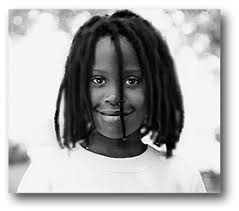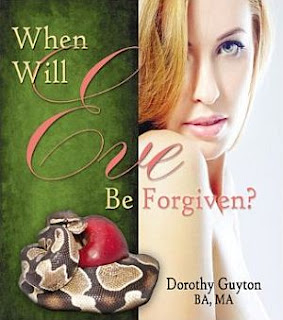When I decided to lock my hair, I had no idea it would be more than a hairstyle choice. I dyed them red. Not Kool-Aid red, but red. I felt so empowered. I noticed heads turning to follow me as a waiter or waitress led me to my dining booth. People would come up to me and ask "Who does your hair?" and I would proudly answer "I do my own hair." I soon became jealous when I saw the number increasing of heads sporting locks. Then, I started to feel a sort of pride. It was as if in one look at locked tendrils, people were saying I like/love my natural hair. Now there are dreads swinging between shoulder blades, up in majestic sweeps of coils. it is just beauty in each dread lock style and it seems to match the personality of the wearer. No two individuals of dread wearers seem to be identical which makes dreadlock watching such a fascinating pass time for me. I wrote a lot about locks on my other blog in 2009 that will be a the basis of my book. I still need some lock journeys to let the world know the people behind the hair.
Below is a partial piece of an article I found on the hairstyle. The link is provided if you would like to read the entire artilcle.
Dare to dread
http://www.guardian.co.uk/lifeandstyle/2003/aug/23/features.weekendHair has often been used as a symbol of identity - never more so than with dreadlocks. It's more than just a style; it's an attitude, a way of life, inspiring passion and disapproval in equal measure. So why is it more popular than ever, asks Hannah Pool
What do you think when you see someone with dreadlocks? Be honest. Maybe you assume that they are a Rastafarian. Perhaps Jamaican. If pressed, might you hazard a guess, they had a liking for listening to reggae and smoking joints - if they're white, might you begin thinking of anticapitalism and road protests? All that based on a person's choice of hairstyle. Or do dreads tell a different story now?
Hair has always carried a special significance of the wearer's sense of self and the image they are trying to project. Hair has also long been connected to religion - Sikhs, orthodox Jews, Buddhists monks are all identifiable by their hair (or the lack of it). But dreadlocks are not just about religion; in fact, most of the dreadlocks you see today have got as much to do with the Rastafarian religion as a short back and sides. On the other hand, to dismiss these newer dreadlocks as just "fashion" dreads also misses the point. Speak to anyone, black or white, with dreads and they will eulogise them. They will tell you that it's more than a hairstyle; it's an attitude, a "dreadhead" mentality, a way of life....

I've always seen dreadlocks as a positive hairstyle, and also a brave one. They come with a burden of responsibility. To you they might be no more than a fashion statement, but others won't see them that way. Yet, despite all the baggage, I've always suffered from a bad case of dreadlock envy. Those with dreads talk about them emotionally, passionately even. And I'd like that passion - I feel as if I'm missing out on something.
As the kind of people who wear their hair in dreadlocks has changed and diversified - they're not just a black thing any more - so too has their meaning. A black person with dreadlocks is no more likely to be a Rastafarian than a white person with a skinhead is a Nazi. And as for white people with dreads, well, these days they are just as likely to be working in an office as demonstrating outside Starbucks. So how did this hairstyle come to symbolise so many different things to so many different people, and where did dreadlocks come from?...

Slowly, dreadlocks became more mainstream. "The clientele has changed," says hairdresser Don Abaka, whose south London salon has specialised in locks for more than 11 years: "I get more professional people, people in their late-20s to mid-30s, who have never had natural hair before. Have you seen how good dreadlocks look with a suit and tie?" Although this new generation of dreadlocks are "fashion" dreads rather than "religious" dreads, they still seem to mean more than any other hairstyle.
The first thing you notice about Carole Tulox, who has curated exhibitions on black heritage, is her dreadlocks. Tumbling gracefully down her back, Tulox's dreadlocks are as fine and beautiful as they are long. I try to visualise her without them, but I can't; they are a part of her. "They work for me on different levels," she tells me. "After years of extensions, I'd forgotten how beautiful it was to feel my own hair. It sounds childish, but it was a form of liberation, a way of making a statement - 'This is me. What you see is what you get.'"
Jessica Edwards, a 31-year-old university lecturer in media, cultural studies and design philosophy, concurs: "My dreadlocks give me a degree of confidence, I hold my head up high. They are a significant part of my personality. It's more than being about aesthetic fashion, it's about philosophy and the way I want to live my life. Dreadlocks have a certain allure, a cultural kudos."
This article (not in it's entirety or order originally written), delivers a unique perspective about the origins of the hairstyle and what it has come to symbolize throughout history.
Hair has always carried a special significance of the wearer's sense of self and the image they are trying to project. Hair has also long been connected to religion - Sikhs, orthodox Jews, Buddhists monks are all identifiable by their hair (or the lack of it). But dreadlocks are not just about religion; in fact, most of the dreadlocks you see today have got as much to do with the Rastafarian religion as a short back and sides. On the other hand, to dismiss these newer dreadlocks as just "fashion" dreads also misses the point. Speak to anyone, black or white, with dreads and they will eulogise them. They will tell you that it's more than a hairstyle; it's an attitude, a "dreadhead" mentality, a way of life....
I've always seen dreadlocks as a positive hairstyle, and also a brave one. They come with a burden of responsibility. To you they might be no more than a fashion statement, but others won't see them that way. Yet, despite all the baggage, I've always suffered from a bad case of dreadlock envy. Those with dreads talk about them emotionally, passionately even. And I'd like that passion - I feel as if I'm missing out on something.
As the kind of people who wear their hair in dreadlocks has changed and diversified - they're not just a black thing any more - so too has their meaning. A black person with dreadlocks is no more likely to be a Rastafarian than a white person with a skinhead is a Nazi. And as for white people with dreads, well, these days they are just as likely to be working in an office as demonstrating outside Starbucks. So how did this hairstyle come to symbolise so many different things to so many different people, and where did dreadlocks come from?...
Slowly, dreadlocks became more mainstream. "The clientele has changed," says hairdresser Don Abaka, whose south London salon has specialised in locks for more than 11 years: "I get more professional people, people in their late-20s to mid-30s, who have never had natural hair before. Have you seen how good dreadlocks look with a suit and tie?" Although this new generation of dreadlocks are "fashion" dreads rather than "religious" dreads, they still seem to mean more than any other hairstyle.
The first thing you notice about Carole Tulox, who has curated exhibitions on black heritage, is her dreadlocks. Tumbling gracefully down her back, Tulox's dreadlocks are as fine and beautiful as they are long. I try to visualise her without them, but I can't; they are a part of her. "They work for me on different levels," she tells me. "After years of extensions, I'd forgotten how beautiful it was to feel my own hair. It sounds childish, but it was a form of liberation, a way of making a statement - 'This is me. What you see is what you get.'"
Jessica Edwards, a 31-year-old university lecturer in media, cultural studies and design philosophy, concurs: "My dreadlocks give me a degree of confidence, I hold my head up high. They are a significant part of my personality. It's more than being about aesthetic fashion, it's about philosophy and the way I want to live my life. Dreadlocks have a certain allure, a cultural kudos."
This article (not in it's entirety or order originally written), delivers a unique perspective about the origins of the hairstyle and what it has come to symbolize throughout history.




No comments:
Post a Comment